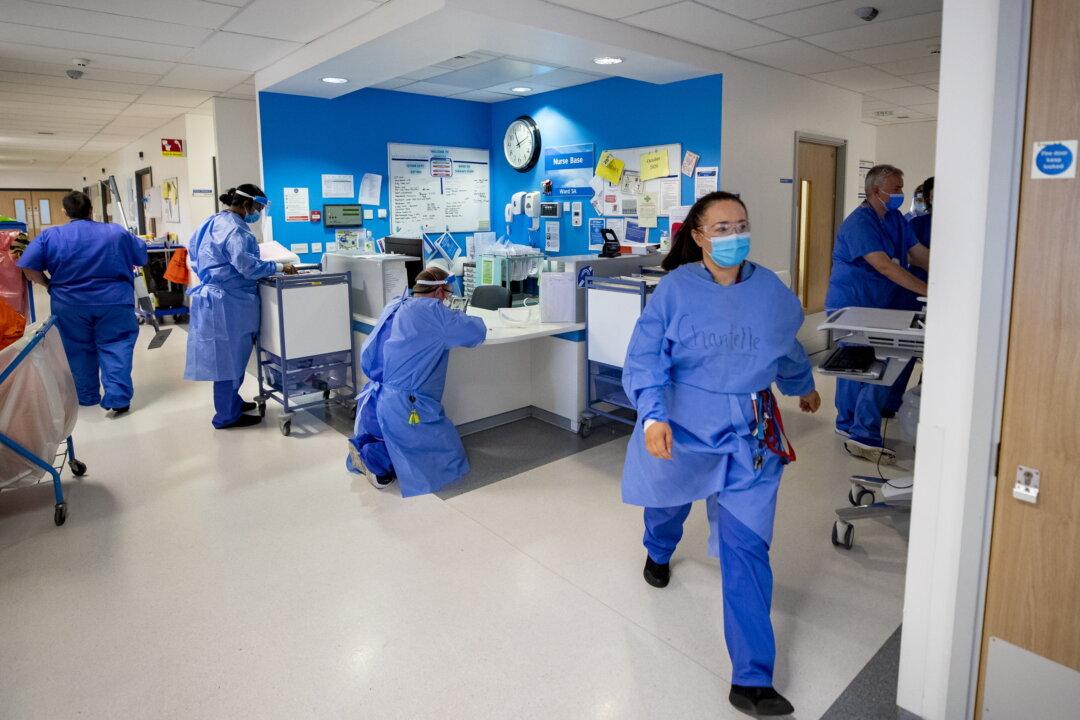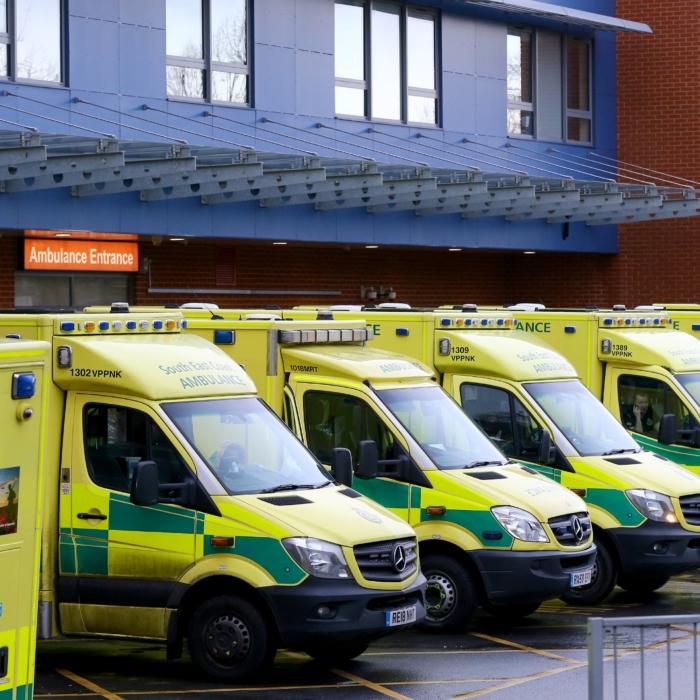The number of hospital patients with flu has quadrupled the lead-up to the New Year, NHS figures suggest.
An average of 4,469 patients were in hospital with flu each day in the last week of 2024. This is almost 3.5 times higher than the same week last year, and includes 211 a day in critical care, NHS England said on Friday.
The end of November saw 1,190 flu patients in hospitals. The figure rose to 4,102 on Christmas Day and 5,074 by Dec. 29, which means flu cases had quadrupled within the period of a month.
The NHS national clinical director for urgent and emergency care, Julian Redhead, said the rate of hospitalisations was “very concerning.”
“These latest figures show the pressure from flu was nowhere near letting up before we headed into the New Year, skyrocketing to over 5,000 cases a day in hospital as of the end of last week,” he said.
He added that COVID-19, RSV, and norovirus hospital cases were also on the rise compared to last year.
Mounting Pressure
The cold snap which has led to alerts from the UK Health Security Agency (UKHSA) could further increase pressure on hospitals.Amber alerts were issued on Thursday and will run until Jan. 8, meaning a rise in deaths, particularly among those aged 65 and over or with health conditions, is likely, the UKHSA said.
Sarah Arnold, senior policy lead at The King’s Fund, expressed concern over the latest weekly NHS data, highlighting that the health service is “consistently running near to full capacity.”
She explained that this leaves “very limited capacity” to manage seasonal pressures, such as a norovirus outbreak or a surge in flu cases, which are likely to coincide with rising demand for care and staff absences from illness.
Arnold noted that while seasonal illnesses strain the NHS every winter, this year’s flu season has started earlier than usual.
“Beds occupied due to flu in December 2024 are already significantly higher than at any point in the winter season last year,” she said, adding that the number of beds closed owing to norovirus symptoms has also been consistently higher than in recent years.
She further emphasised that staff absences are exceeding last year’s levels, compounding the pressures on the system.
Ambulances, she added, are facing “significant delays in handing over patients to busy A&Es,” underscoring the critical challenges facing the NHS as it heads into winter.
The NHS figures revealed that hospitals managed 98,118 ambulance handovers last week, while NHS 111 received 465,442 calls.
‘Tidal Wave’
Flu activity also continues to rise in Scotland, with Public Health Scotland (PHS) figures showing a 12 percent increase in hospital admissions in the past week.“Although we always expect to see increases in flu in winter, we are seeing particularly high levels this year. This is worrying as flu can lead to severe illness, hospitalisation, and even death, particularly among vulnerable groups such as the elderly, pregnant women, young children, and those with underlying health conditions,” said Dr. Nick Phin, director of clinical protecting health at PHS.
Health Secretary Wes Streeting has acknowledged the “huge pressures on the NHS” caused by the “tidal wave of flu.”
“This government has ended the strikes so staff are on the frontline this winter rather than the picket line, introduced the new RSV vaccine, and put immediate extra investment into the NHS.
“But we have been honest from day one that the status quo isn’t good enough. We are investing in and reforming our NHS, and grasping the nettle of social care reform, to finally break out of the cycle of annual winter crises, because there is no solution to the crisis in the NHS that doesn’t involve a solution to the social care crisis,” said Streeting.







